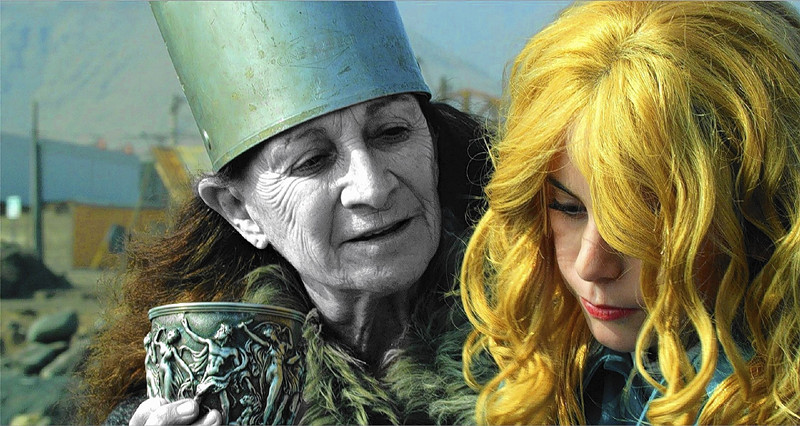
So many films could be considered the work or the end product of dreaming. David Lynch, while working on Blue Velvet, revealed that he was stumped for a ending until he dreamt the entire climatic scene right down to the position of the furniture and the murder victim.
Such random images conjured from the depths of our psyche has fueled the creation of many different types of film. Here are 10 notable films (but only a sliver of the real number) where dreamscapes were used to blur reality.
10. In Dreams (Neil Jordan, 1999)
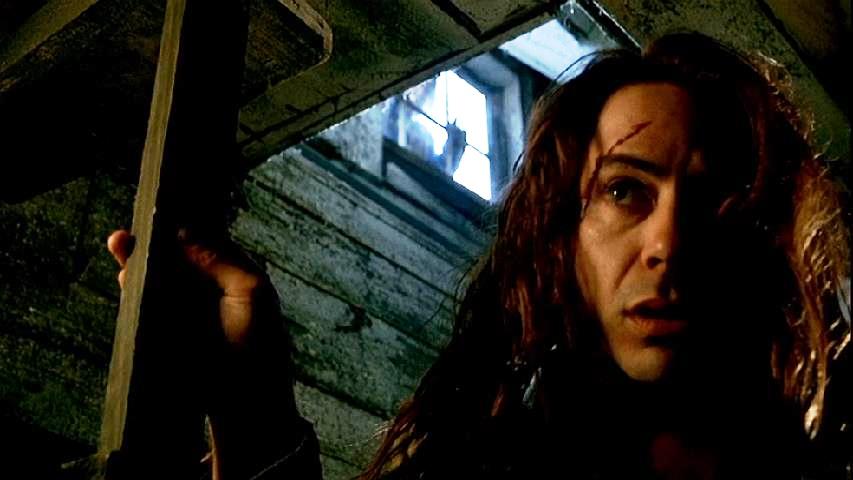
The most traditional of thrillers here, In Dreams is a noble failure as it tries to inject some life into a fairly hackneyed premise which was even by 1999 was exhausted. However Jordan is a solid director and he gives the haunting dreamscape here some flair for a mostly forgettable outing.
Despite the whiff of going through the motions, ballast is provided by a genuinely terrific performance by Annette Bening finding some depth to what could have been a gimmicky woman-gone-crazy part and Robert Downey Jnr. who had yet to hone his wiseacre persona that has in recent times overwhelmed his turns. This is the craftsman Downey Jnr. who can turn what on paper is a fairly rote serial killer and give it just enough quirk to offset total cliche.
The darker aspects of the story are well enough utilized but in the end the reality of the film feels shallow and half baked next to the well executed jump scares of the dream world. Jordan would soon return to richer material that eschewed straight ahead scares and return to his more character based work than when at its best (The Company of Wolves, Butcher Boy, et al) always had a nightmarish edge all of its own.
9. Mood Indigo (Michel Gondry, 2013)

A dizzying and exhausting travelogue through the hyperactive mind of Michel Gondry Mood Indigo feels like every wacky idea its frazzled creator had put into a singular film. A fairytale love story that fizzles with tremendous imagery the film dazzles in its production design but feels weighed down in a need to constantly impress.
Pure unfiltered Gondry could rot teeth at this rate and while the film slows and becomes more somber thematically it still mixes a fantasy world where people drive in car clouds, where flowers bloom in lungs, where clocks skittle like insects and ties it to a simplistic emotional arc that devastates as it unfolds.
The dreamlike feel is from the sumptuous visuals and the random scattershot approach to plotting which is a trademark of Gondry. Divorced from an anchoring presence such as Kaufman, the French director’s work pings in a million different directions and becomes an exercise in pure whimsy and never feels quite like reality.
This has the randomness and unpredictability of dreaming but it does have a semblance of reality in its emotional truth. These are feelings writ large with the broad strokes of fairytale but it has the slippery elusive quality of a frothy day dream.
8. White Bird in a Blizzard (Gregg Araki, 2014)
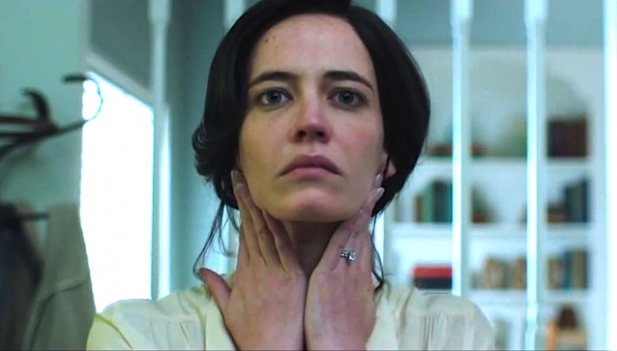
Known for a confrontational style Gregg Araki revels in taking the familiar milieu of suburbia and finding deeper and darker truths beneath. White Bird deals with the disappearance of a young woman’s mother and the ramifications it has on her life as the narrative splits between two different time periods.
The stark white space of the dream that Shailene Woodley mentions not only lends some weight to the story, its imagery acts as a bridge between the separate strands of the story and grounds the viewer as the more lurid threads start to pile up. Playing not only with dreams but flashback, the film indulges Araki’s flair for manipulating a viewer’s opinion through selective perspectives and perceptions.
There is a grim inevitability towards actions here and the film doesn’t pull its punches to some off putting and unsettling moments, much like the filmmaker’s previous work such as Mysterious Skin, another shocking tale grounded in a heightened corner of suburbia but as with White Bird youthful dreams quickly curdle into the nightmares of adulthood.
7. Vanilla Sky (Cameron Crowe, 2001)
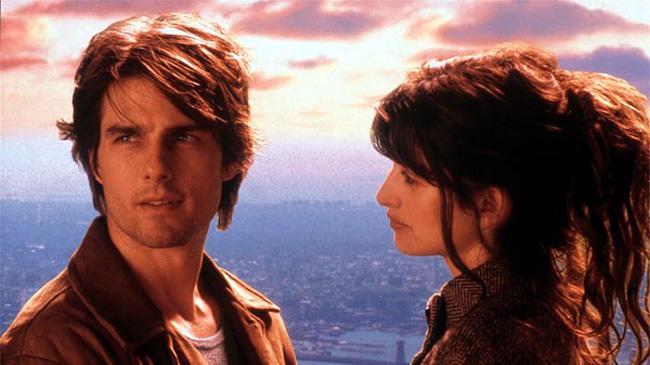
Branching out from a comfort zone consisting of idyllic teenage rebellion and 20-something grunge antics, Cameron Crowe made this troubled and troubling thriller about a man whose life is ruined when his hedonistic lifestyle disfigures him horribly and sets him off on a very surreal path.
Tom Cruise as main character David, marshals his nervy energy and tics into a compelling performance in a very uneven film that feels a little unsure of what it’s trying to say but has style and energy to spare.
Using the concept of Lucid dreams to explore the depths of love the film strives for a philosophical point greater than its script can reach but it has fun turning the dreamscape into a kaleidoscope of pop culture references such as Kurt Russell’s therapist being a dead ringer for the stalwart and noble performance ed by Gregory Peck for literary icon Atticus Finch.
Crowe also has his usual fun with soundtracks and musical iconography, a beautiful shot of David with love interest Sofia is based on the deathless image of a young Bob Dylan huddled with early lover and muse Suze Rotolo, used as the cover of his “Freewheelin’ Bob Dylan” record.
There’s a playful quality to these references which clashes with the cold and sterile elements elsewhere. It wants to be both Hitchcockian romp but with a more cerebral edge but the sum of the whole feels wanting and its employment of the lucid dream seems to just undermine any decent drama stuff. It feels like the film backs away from a character study to become a hokey sci-fi film all of a sudden.
Still the images delight and thrill, songs are used wonderfully (The Beach Boys’ Good Vibrations is well selected for the reveal) and those Monet Vanilla skies are irresistible eye candy.. Still unlike other films here, this feels like someone telling you about their dream and while it starts off interestingly enough, it’s easy to trail off for the inevitable non-resolution.
6. Inception (Christopher Nolan, 2010)
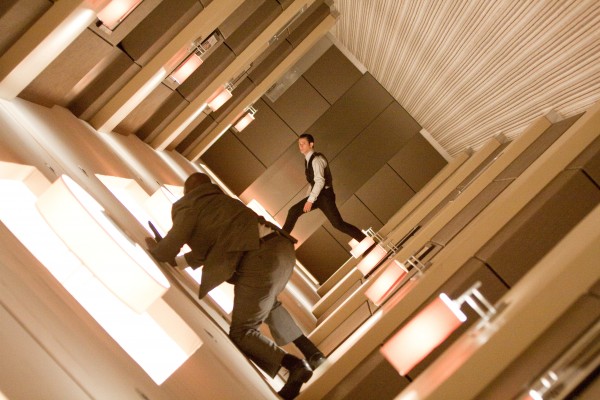
Seen as the thinking man’s action film, Inception is a twisty and turny take on the action and heist film genres. Taking a methodical approach to the idea of criminals stealing information from minds the film is an action packed, exposition heavy romp that eventually turns to sadder themes of a love soured and lost in limbo.
Influences range from Buster Keaton via James Bond to The Matrix but Inception manages to blend elements into a crowd pleasing puzzler that has all the hallmarks of classic Nolan mis-direction.
While not as random in plotting as its dream setting would suggest, the complexities of the themes alongside more traditional action beats provides an interesting tension and DiCaprio is his usual intense self. However the line between reality and dream is more delineated here which makes it less interesting than films of a similar ilk.
The iconic ending seems to get away with being a dolled up version of a classic narrative hook, “It was all a dream…or was it?” and why this is tolerated due to Nolan’s pedigree may be a mystery to many of the films detractors. Nevertheless the work continues to inspire all sorts of dreamers from the abstract minded all the way to the rigidly structural amongst us.